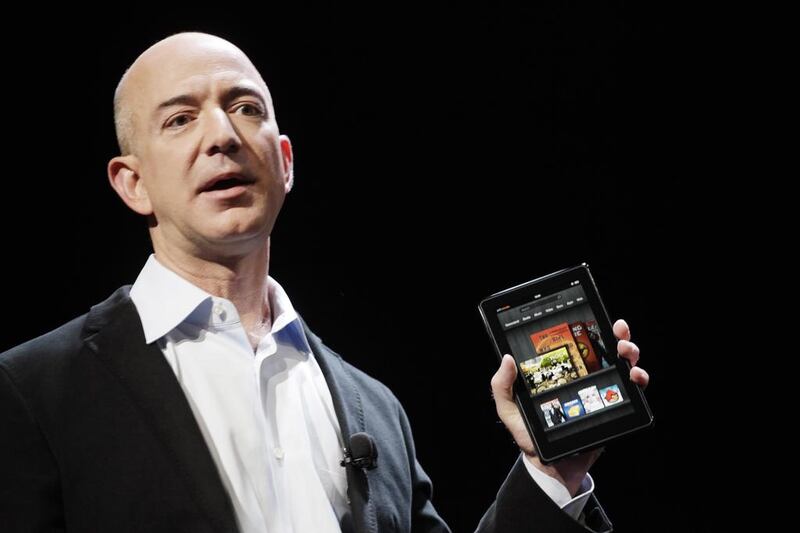Amazon.com chief executive Jeff Bezos wants control of the smartphone home screen so he can put more of the company’s services squarely in front of consumers.
More than seven years after Apple introduced the iPhone, Amazon will unveil its first foray into the market tomorrow at an event in Seattle hosted by Mr Bezos. The company is jumping into a crowded and hyper-competitive smartphone arena dominated by deep-pocketed rivals such as Samsung and Apple, as well as lower-cost rivals from Asia, even as sales growth slows in some markets that are saturated.
By introducing a handset, Amazon can more directly push access to its online store, or digital content like music, movies and games, to consumers. A smartphone also adds to the growing lineup of tablet, e-reader and other hardware that can help Amazon to circumvent Apple, Google and Samsung, which serve as digital gatekeepers by controlling how applications and media reach customers on mobile gadgets.
“Imagine a home screen of all Amazon apps - that’s kind of what they are looking for,” said Carl Howe, an analyst at Boston-based Yankee Group.
Michelle Taylerson, a spokeswoman for Amazon, declined to comment.
A smartphone underscores how far Amazon has moved from its roots as an online book seller. Just as Apple has the iTunes store so consumers can buy music and videos, and the App Store for downloading mobile apps, Amazon now has similar services. The Web retailer said this week that its app store has tripled its titles over the past year to more than 240,000 programs, primarily for its tablets, and is available in almost 200 countries. Its $99-a-year Prime membership for unlimited shipping also provides access to movies, television shows and music.
Yet the smartphone industry is an increasingly complicated market to navigate. The devices generated sales of $338.2 billion last year, up 21 per cent from 2012, according to researcher IDC. Much of the growth has been coming from developing countries like China, where local manufacturers like Lenovo and Xiaomi are gaining popularity. In the US, where Apple and Samsung are the biggest players, growth is slowing.
Those willing to spend big on smartphones also aren’t always successful. Google bought Motorola Mobility as part of a $12.4bn deal in 2012 and subsequently created its own smartphones such as the Moto G. The handset unit had just 6.3 per cent of the market at the end of February, according to ComScore. Google is now in the process of selling the business to Lenovo for $2.91bn.
To distinguish itself, Amazon’s handset is anticipated to feature 3-D viewing capabilities that don’t require glasses. Mr Howe said Amazon also could introduce a new pricing structure like Republic Wireless that offers cheaper monthly plans because the service uses Wi-Fi connections whenever possible, instead of connecting to a wireless network.
“We shouldn’t underestimate their ability to stand out from a crowded market,” Howe said of Amazon.
In a nod to the competitive market, Amazon last week sent out invitations to its Seattle event with a copy of the book “Mr. Pine’s Purple House.” The story features a man who decides to distinguish his house from others on the block by painting it purple.
The book says, “A white house is fine, but there are 50 white houses all in a line on Vine Street. How can I tell which house is mine?”
business@thenational.ae
Follow us on Twitter @Ind_Insights





